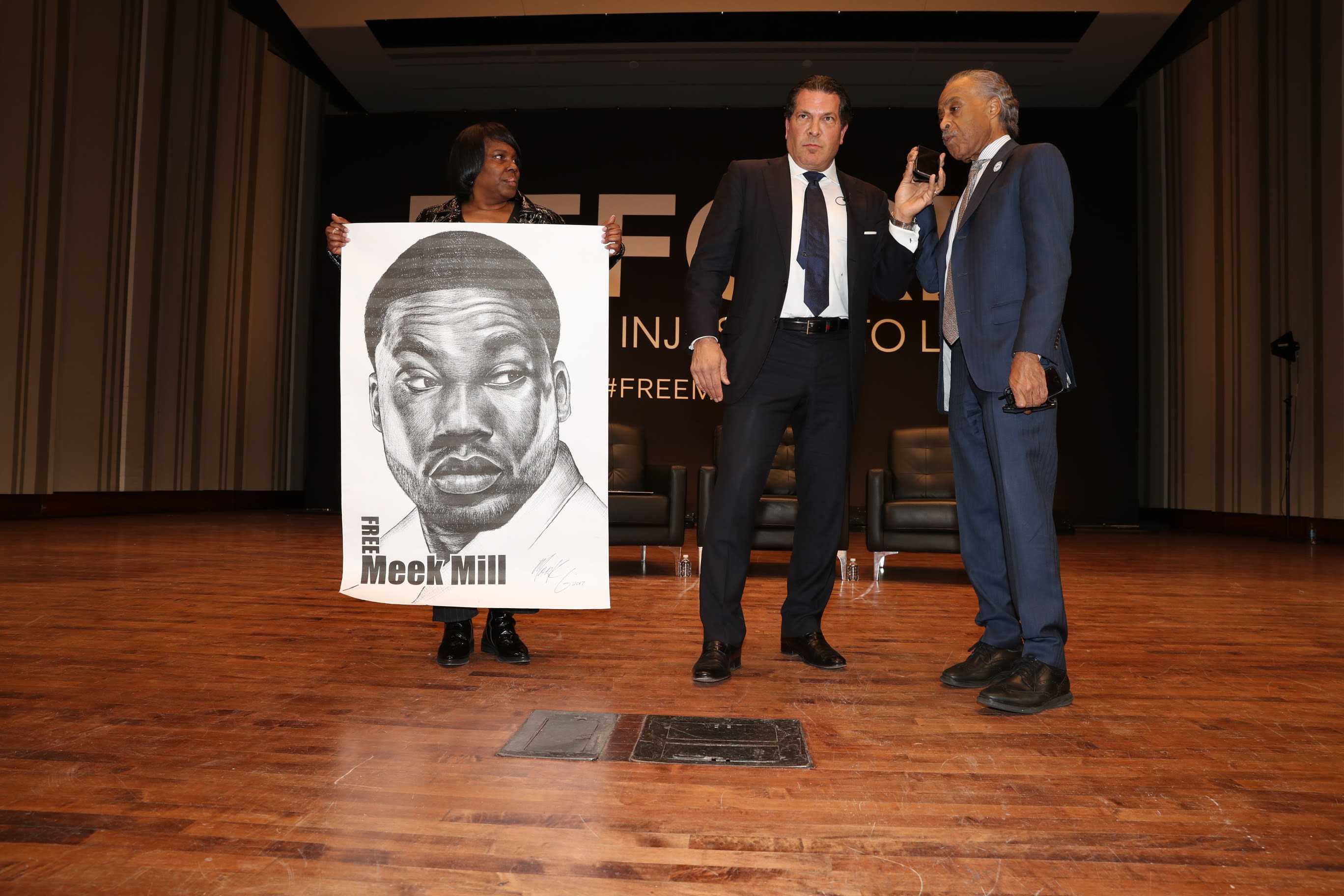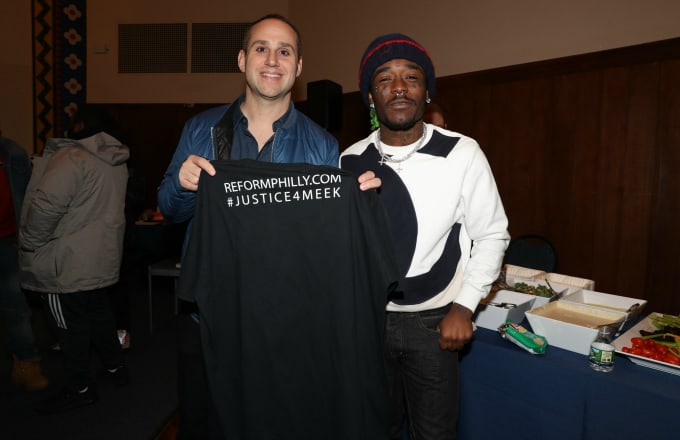Meek Mill’s 2017 prison sentence reignited the longtime debate about the U.S. criminal justice system and the problem of mass incarceration of racial minorities.
On Tuesday, activists, legal experts, as well as friends and family of the rapper, gathered at the University of Pennsylvania’s Irvine Auditorium to shed more light on these growing issues. The panel discussion is called "Reform Philly: Bringing Injustice to Light," and will include speakers Rev. Al Sharpton, Philadelphia’s ACLU director Reggie Shuford, NYC rapper Mysonne, attorney Joe Tacopina, and Meek’s mother, Kathy Williams.
The student-organized event will address the “probation trap” that resulted in Meek’s two-to-four year prison sentence, as well as the rampant racial discrimination within judicial system. Many people have criticized Meek’s sentencing as “heavy-handed” and have argued that the punishment was a form of retaliation by Judge Genece E. Brinkley. Despite several petitions and accusations of corruption within the case, Meek remains behind bars without bail.
“[Tonight is] about reform and about a system that really has to take a deeper look, not just at Meek’s case, but at the hundreds of thousands of other young, voiceless individuals who are sitting in prison for technical violations. Let me just remind you that Meek Mill was sentenced to two to four years in jail for a non-criminal offense,” Tacopina said before reiterating his criticism of Judge Brinkley. “She gave him two to four years because of her personal issues with him. [...] Meek has spent his entire adult life on probation. Ten years on probation. He couldn’t even go see his mother when she had surgery. He couldn’t see his child at certain times, unless he got permission. That’s not what probation is supposed to be about. Probation is about rehabilitation. This case has been a perversion since day one […] This case is bigger than Meek Mill.”
Tacopina went on to provide some unsettling statistics about Pennsylvania’s incarceration rates. He said about one-third of the state’s 50,000 prisoners were placed behind bars “not for criminal offenses,” but because of technical violations of probation. Just like Meek.
During the panel discussion, Tacopina had received, what appeared to be, an unexpected phone call from Meek. The rapper shared the following words:
“I wanted to say that I appreciate all the love and support from the people in Philadelphia and all over the world,” he said. “I think it’s about time Pennsylvania had some type of light shined on the system. I’m actually caught up in a system—not just me, myself, but me and a bunch of other young men and older men—that, you know, it’s kind of hard to get out of. I’ve been on probation since I was 18 years old. I ain’t commit a crime since I was 18 years old, and I’m in a state prison due to a few small, minor mistakes. I’m just appreciative of all the support everybody’s been bringing to the table.”
He continued: “I feel like I’m the example that’s shinning the light. Of course I want my freedom back too, but I’m the platform for the other people fighting for their freedom.”
Later on in the event, panel members addressed discrimination within criminal justice system and how it was a reflection of America’s ongoing problem with racism. Shuford compared the current system of imprisonment to slavery, as it disproportionately affects black people and poor communities.
“It’s all a part of a broken system […] a broken system of imprisonment that was designed to control black and brown bodies,” he said. “Every generation has had an institution that was designed to control black and brown bodies. Slavery was one of them. Jim Crow was one of them. Mass incarceration is one of them. It’s the new Jim Crow.”
Speakers also offered suggestions for how to fix the broken system and put an end to “collateral consequences,” which are additional restrictions and penalties attached to a criminal conviction after an individual has been released.
“There’s one solution: Get rid of the conviction,” said Jay Jordan of Californians for Safety and Justice. “It’s called a sunset clause, meaning that after you serve your time and you have not come into contact with law enforcement, that conviction should be purged from your record. The U.K. does it. They implemented it in the ’90s and they were so successful that they’ve shortened the amount of time you have to be crime free to three years! If we pass a law in every single state in the union that said, ‘that after x amount of years, a conviction goes away,’ [...] overnight, 75 percent of the 70 million would be free. Talk about freedom of liberation.”
You can check out the panel discussion above and photos of the event below. Attendees included Philadelphia Eagles safety Malcolm Jenkins, 76ers co-owner Michael Rubin, and Lil Uzi Vert.







